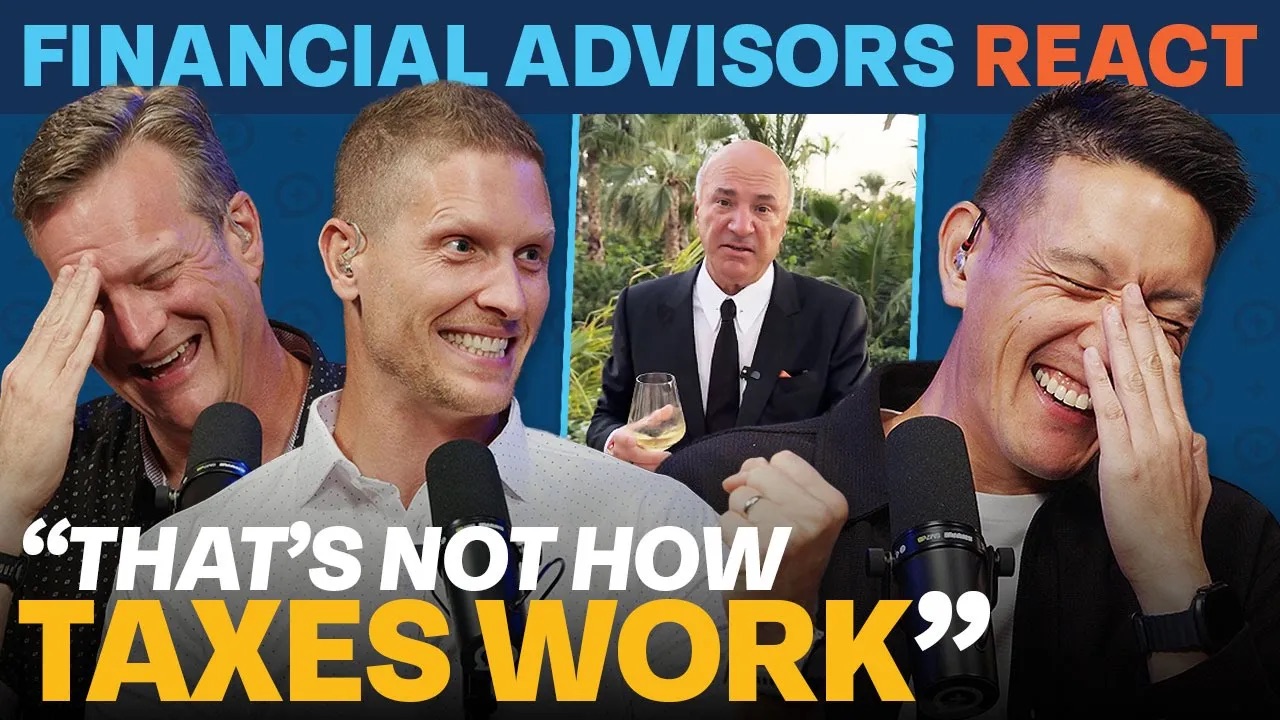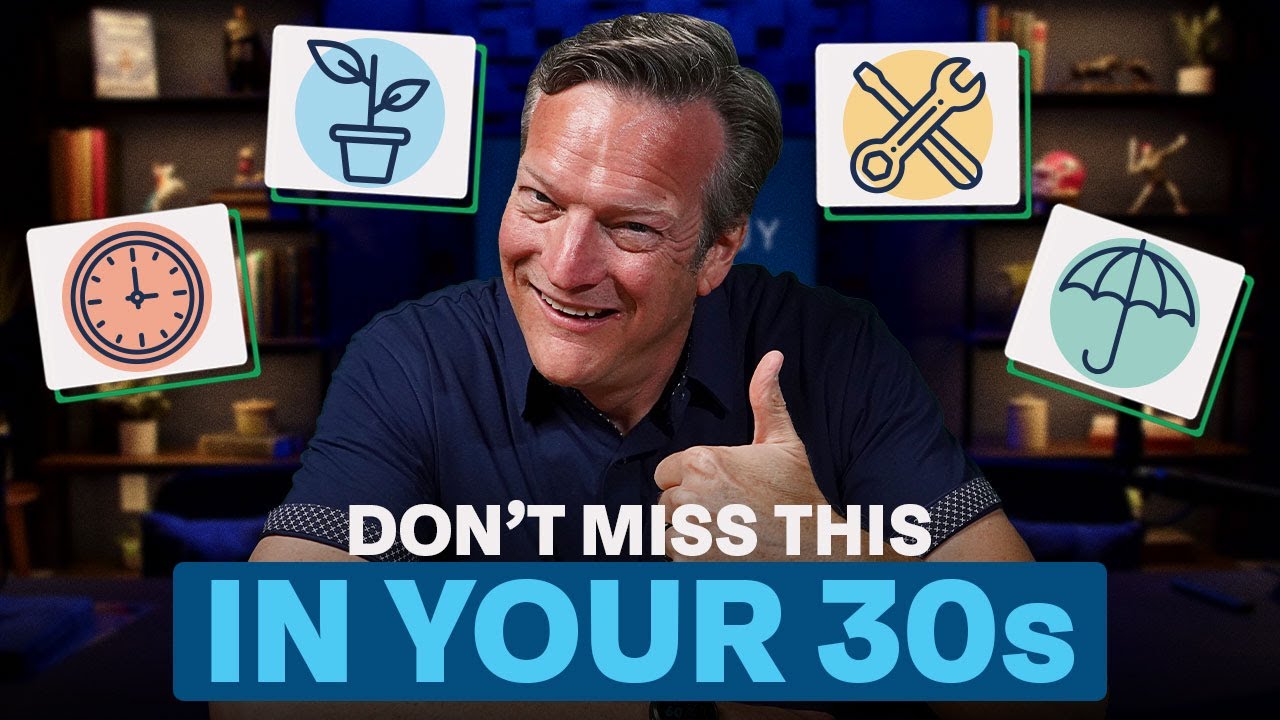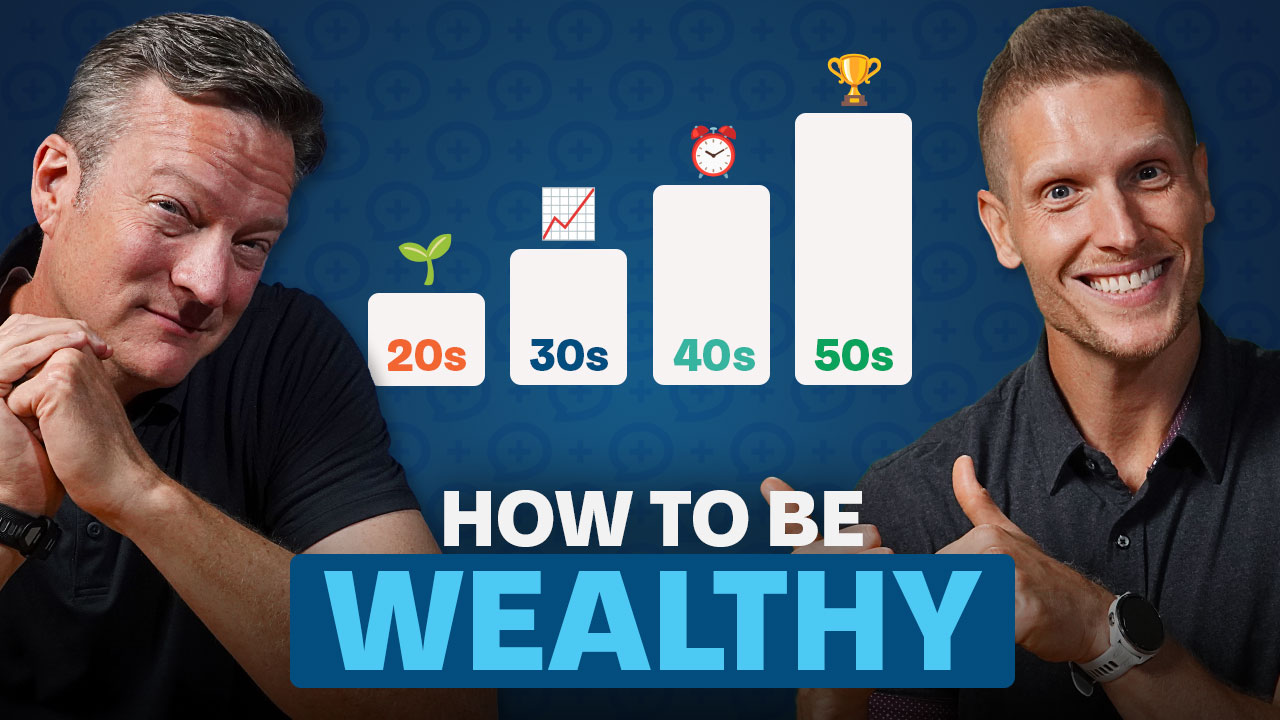Sam says, "Hi Money Guy team, do you have any career advice for switching from a CPA to a financial advisor? What are some things you wish you knew when you started as an advisor and embarked on that career path?"
Well, it seems silly for me to weigh in on this one, right? I know someone who might know. We had a recent expert on what it looks like to switch from being a CPA to becoming a financial advisor. Wouldn't that be super interesting? Sam, tell us how long you've been a CPA. He did not, but if you're out there, Sam, I was going to fine-tune my answer here.
Because here's the thing: I try to convince everybody I can who's young that if you don't know what you want to do when you go to college, go be an accountant. I really mean it. I've convinced my niece to do this, and I'm so proud of her. She's at UGA as an accounting major, too. Because I think accounting is the language of business. And if you don't know, there's so much... I've got a guy who's in one of my business groups, and he's working through a business sale. And he and I were talking the other day, and I was like, "Man, I'm going to talk to you like I don't talk to anybody else, because I know you come from a public accounting background. So we can speak our secret language, because you understand all these numbers, you understand these formulas, and I don't have to just bring it down." I was trying to make it not seem rude and condescending, as CPAs maybe can be.
But here's the thing, Sam, congratulations, you're a CPA. I already think that CPA is one of the greatest majors. But here's my word of caution, and I'm probably going to upset every one of my CPA friends out there: Sam has been a CPA for three years. They crush you with work. I mean, you work a lot of hours, and you're getting a ton of experience. I lived through it, and I think I was better for it because I really learned how to understand how business works. A lot of tax seasons and so forth. But here's my thing: you will get to a point, I would challenge Sam, saying, "Look up the food chain from you, and look at your boss's life, the manager at the CPA firm you're at, and ask yourself, 'Is this the life that I want?' Because being a CPA is very lucrative once you get to, like, partnership level. But still, there's this ultimate element that I've noticed with all my CPA friends: it leads to some burnout.
You don't get paid unless you're essentially doing work. This is the problem with attorneys too, is that, yes, your time is very valuable, and you get paid a premium, but that is tough work to do when you're 48 years old, 52 years old. You still bill at $400 or $500 an hour, but man, you still... you just don't get to come off. You have to be on at all times. So that's why I think you see so many CPAs jump into consulting, becoming financial advisors, and other things, because your skill set is so valuable that it works out.
But I do encourage CPAs: go into public accounting, get that grind, but then get out and go figure out. And it sounds like Sam, you want to get into the financial space. But here's the thing, and let me go ahead and throw the cold water on you: you make a great living as a CPA. When you come back into the financial space, the only people that pay you great money... you make, let me say, it's a better way, sky's the limit as a financial advisor in terms of what you can make, but the entry level, if you're going to do it right, is going to be less than what a CPA is making. Okay? It's going to be a step back for a three-year CPA to get into the profession. But if you do it right, you'll catch back up four to five years in the future. So, you just have to ask yourself, "Is it worth taking that step back?"
Because all, and I want to caution you if you go to some of these other financial outfits that tell you immediately how much money you're going to make. Ask them at what point you have to start calling friends and family and asking them to let you manage their money. Because that's actually the worst thing that can happen. I think I need you to respect the ten thousand hours that are required to become an expert on anything. So if you came into financial planning, you would not... I would not want you to call a family or friend until you were four or five years into that profession. So that you actually do good work for them because they love you, they're good, they're going to take the call because they love you and they care about you. So you owe them the same respect to not call them until you love them enough that you're going to call them as an expert, not just somebody who needs a favor so that you can actually get your first account. Because you're not going to know up from down right out of the gate. So be careful of the get-rich-quick places that are going to churn and burn through your client list, your friends, your family. Get the experience, but know it's probably going to be a step back to go forward.
One thing I'll tell you, Sam, is if you're interested in going the financial advising route, this is a field that you want to look at. I would encourage you to go look at the Certified Financial Planner designation, the CFP designation. We think it's probably one of the prerequisites to do this. It's not a necessity, but we really like seeing that as something we place a lot of value on for our younger associates coming through. So it's really easy to go look at what course curriculum is required. As a CPA, you might be able to exempt out of a lot of it. But you can go and get the materials and see, "Okay, what kind of information is covered? What kind of things would I be learning and doing as a financial advisor?" Just looking at that corpus of curriculum would allow you to figure out, "Okay, is this something I really like? Or do I just like the investing side? Do I not really care about the estate planning, the insurance analysis, the tax stuff, and the retirement stuff? Or do I actually love all of that?" And if you love all of that and you can kind of get through some of that material and it keeps you juiced up, by all means, go in that direction.
But I'd at least stick my big toe in before I left the accounting world, because you may find you just really like doing accounting work, and that's okay. It's just there are different trade-offs associated with that. I want you to go to our careers and check out our jobs, too. But I do want to caution because I had a friend, a super successful CPA, and he's like, "Man, I just want to come work with you." I was like, "Look, we have a lot of retirees that come and work with us. You could do it." And I said, "This would be the starting salary," and he goes, "Is that a month?" And I was like, "No." So that's the only thing I tell Sam: you've got to figure out where your journey is because some people let it get too far in. Because that is no different than being an entrepreneur. If you have to take a step back to go a step forward, timing matters a lot. If you've got a lot of family and friends, if you've got a spouse and children, and those life choices have squeezed down your decision, your path to success is a lot more limited. So look at that. But I will tell you, Sam, it is the greatest profession. I always love being a financial planner because our clients love us. I wake up feeling like I'm adding value every day when we're working with clients. And it's just a good... and I don't think burnout. I went from when I started working as a public accountant, I already had a plan that I was going to retire between 50 and 55. And now here I am quickly approaching both of those dates, and I couldn't imagine leaving the workforce. That means you're working in the right field. You actually still get excited this many years, multiple decades into the career, and still love doing it every day. For more information, check out our
free resources.













